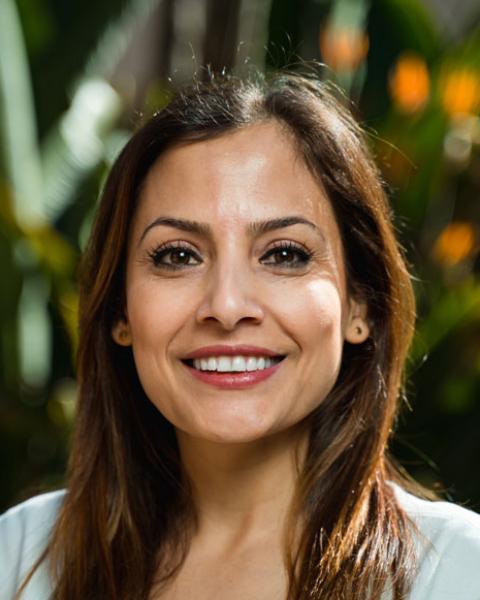
Somayeh Dodge
University of California - Santa Barbara, CA
Santa Barbara, California, United States
Dr. Somayeh Dodge is an Assistant Professor of Spatial Data Science and leads the MOVE Research Lab in the Department of Geography at the University of California, Santa Barbara. She received her PhD degree in Geography with a specialization in Geographic Information Science (GIScience) from the University of Zurich, Switzerland in 2011. She holds an MS degree in GIS Engineering and a BS degree in Geomatics Engineering from the KNT University of Technology, Iran.
Somayeh is a recipient of the prestigious CAREER award from the U.S. Science National Foundation (NSF) in 2021, and the 2022 Emerging Scholar Award from the Spatial Analysis and Modeling Specialty Group of the American Association of Geographers (AAG). Supported by the NSF, Somayeh's research focuses on developing data-driven analytics, knowledge discovery and modeling approaches, and visualization techniques to study movement in human and ecological systems. Her work has appeared in a number of high-ranked journals including Methods in Ecology and Evolution, International Journal of Geographic Information Science (IJGIS), Philosophical Transactions of the Royal Society B, Movement Ecology, Cartography and Geographic Information Science (CaGIS), and Computers, Environment and Urban Systems (CEUS).
Somayeh currently serves as a Director on the Board of Directors of the University Consortium for Geographic Information (UCGIS), and as the Co-Editor in Chief of the Journal of Spatial Information Science. Before joining the UC Santa Barbara in July 2019, Somayeh served on the faculties of the University of Minnesota, Twin Cities (2016-2019) and the University of Colorado, Colorado Springs (2013-2016). Prior to that, she was a postdoctoral fellow at the Department of Civil, Environmental, and Geodetic Engineering at The Ohio State University in 2012.
What change do you want to see come to the professional ecosystem of ecology?
I believe cross-disciplinary collaborations can greatly benefit both ecologists and method developers from other computational domains such as Geographic Information Science and Data Science. With the increasing availability of movement data as well as auxiliary data about the moving individuals' behavior and their environments, we need to work together toward an integrated science of movement with the aim of converging research on human mobility and movement ecology and developing movement analytics methods and modeling approaches that are applicable across the animal and human divide.
What is the best piece of professional advice you've received?
Don't be afraid of changes in career path and be open to new opportunities.
What is your greatest professional accomplishment to-date?
Taking my current faculty position at the UC Santa Barbara Geography Department was beyond my imagination. I am grateful for this opportunity. In addition, it was a great honor to receive the NSF CAREER Award.
How does your identity influence your work?
As a woman faculty, a scholar who has worked and studied in a number of international institutions, and a person who has lived in different places across the world, my work is influenced by my diverse life experiences and my optimistic views of our changing world. In my research lab, I strive to create an inclusive environment that is welcoming to students of different backgrounds, and that fosters creativity, positivity, empathy, and team spirit to reach goals.
Presentation(s):
-
Recent Advances Lecture
Wednesday, August 17, 2022
12:15 PM – 1:15 PM EDT
